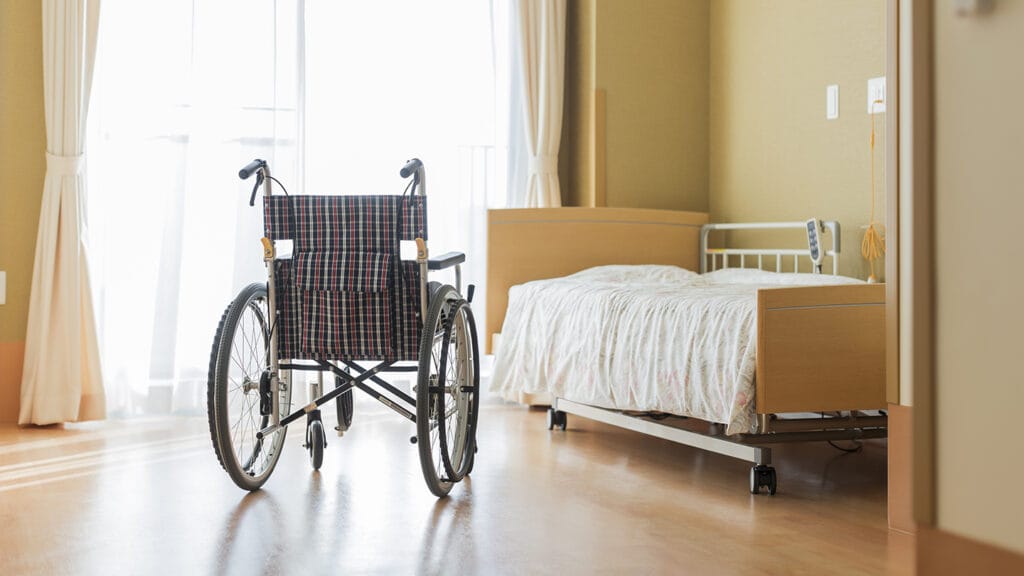
A Rhode Island nursing home that had turned to a grassroots funding campaign that included a resident-run bake sale to avoid closure is reworking one of its floors into a memory-care focused assisted living wing as part of a new plan to stabilize its finances and remain open.
Faced with approximately $100,000 of monthly losses, Linn Health and Rehabilitation in East Providence is in the process of transforming into The Loft at Linn. It will retain a portion of its skilled nursing beds.
The change should stabilize Linn Health enough to ensure that the settings still can serve 70 residents and that more than 150 staff members can count on retaining their positions into the future, said Rick Gamache, CEO of Aldersbridge Communities, the nonprofit organization that runs Linn Health.
“Whereas Medicaid reimbursement for nursing homes remains grossly inadequate, Rhode Island Medicaid payments for assisted living are fairer,” Gamache told McKnight’s on Thursday. “Our conversion from SNF to AL memory care will cut our losses by more than 50%.”
Gamache explained that achieving that 50% mark for Linn Health would ensure that Aldersbridge as a whole would be breaking even financially.
Transitioning licensed beds has become a more common response to heightened regulatory and financial pressures facing skilled nursing lately. Even more conversions could be ahead, too.
In a survey by McKnight’s Senior Living sister media brand McKnight’s Long-Term Care News conducted at the end of 2023, approximately 19% of respondents said they would consider converting skilled nursing beds to a different license type if the federal government finalizes its proposed minimum staffing requirements. But although the mandate applies directly only to skilled nursing facilities, industry advocates expect it to affect assisted living communities as well, because operators will be competing for workers from the same applicant pool.
Still waiting for the state
The ambitious plan to create The Loft at Linn would transform the facility’s second floor to include 22 private assisted living rooms. Some current staff members also will need to be retrained to meet the requirements of their new roles in assisted living.
“We have obtained grant money to convert shared nursing home rooms into private studio apartments, and we are seeking more funding to renovate the halls, dining room, etc.” Gamache said.
He also explained that some of the grant funds were set aside for staff training. Avoiding any layoffs was a priority, he added.
Renovations are two-thirds of the way complete, Gamache told McKnight’s, and residents already are moving into the new apartments. Staff members chose 22 residents with dementia diagnoses but who require only one care worker to assist them with activities of daily living.
Those residents still are being treated under skilled nursing rules, however, while Linn waits for approval and certification from state and federal regulators. That approval could take anywhere from a month to a year, Gamache said, although he hopes the red tape will be cleared quickly.
A pathway for nonprofits?
The partial transition to assisted living was a matter of survival, according to Jamie Sanford, Linn Health’s administrator.
“We didn’t want anyone to leave Linn nor have to be sold to another organization or close our doors,” she said. “This tenacity inspired and drove us to find and implement a survival strategy. It was important to us and to the families to keep caring for all of the residents who depend on us.”
Linn Health’s financial situation is all too common for nursing homes across the country, but its strategy to remain open likely is best suited to nonprofit facilities, Gamache told McKnight’s.
“I suspect that most, if not all, nursing homes in Rhode Island and around the US have some residents with a dementia diagnosis who require a one-person assist that could be cared for in a Medicaid assisted living,” he explained, “but there are very few providers who will choose this direction. I see not-for-profits like us evolving in this way, but most assisted living is investor-owned or publicly traded, and the model is set up to produce income.”
Nationally, 61% of assisted living communities are Medicaid-certified, and 18% of assisted living residents rely on Medicaid to pay for daily services. Forty-two percent of assisted living residents have diagnoses of Alzheimer’s or another form of dementia.
Although some red tape remains for the struggling facility, a sense of hope is building among leadership and in the community.
“At first, the conversion plan was met with skepticism on everyone’s part,” Gamache said. “Now, as we are closer to opening, there is excitement and enthusiasm. I am confident we will meet our goals.”


